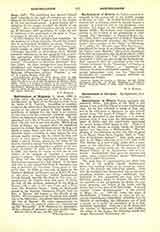

Bartholomew of Edessa, Syrian apologist and polemical writer. The place of his birth is not known, it was probably Edessa or some neighboring town, for he was certainly a monk of that city, and in his refutation of Agarenus, he calls himself several times “the monk of Edessa“‘. The time in which he flourished is also doubtful; it is certain, however, that it was after the Mohammedan conquest of Syria, and the controversy concerning the sacred images which began in 725. There is a work of his written in Greek, which he directed against one Agarenus, a Mohammedan. The beginning of the refutation is lost; the title as given by Le Moyne (Varia Sacra, Leyden, 1685), is “Elenchus et Confutatio Agareni”. This work may be read in the Migne collection, P.G., CVI, 1381-1448. This treatise, as it now stands, opens with a statement of the objections of Mohammedans against Christianity, among which are the dogmas of the Blessed Trinity, of the Incarnation, and of Confession. Bartholomew then gives his answers, and makes many counter-charges against Mohammed and his so-called Revelation.
The main lines of argumentation are taken from the life of the prophet himself. Bartholomew shows that nothing either in his parentage, education, or life betrays any God-given mission. From this he concludes that Mohammed was an impostor, preaching without any Divine credentials. Bartholomew is well acquainted not only with the Christian position which he defends, but also with the position of his adversaries; he knows the customs, practices, and beliefs of the Arabs, and he boasts that he has read all of their books. A second treatise “Contra Muhammedum” is also printed in Migne (loc. cit., 1448-58) under the name of Bartholomew of Edessa; but, in spite of the numerous resemblances, explainable otherwise than by identity of authorship, the differences are of such a nature as to make the ascription of it to Bartholomew unjustified. Such are e.g. the names and the number of Mohammed’s wives and children; the editor of the Koran; the Nestorian monk who taught Mohammed Christianity, etc.
R. BUTIN

